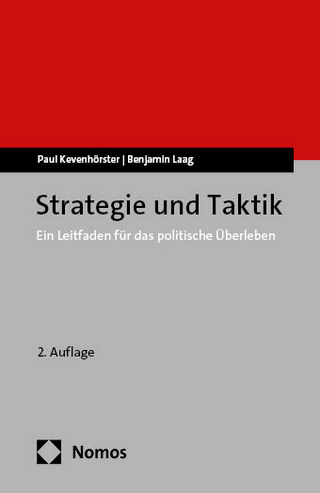
The Politics of Peacebuilding
Emerging Actors and Security Sector Reform in Conflict-affected States
Seiten
2018
Routledge (Verlag)
978-1-138-59330-5 (ISBN)
Routledge (Verlag)
978-1-138-59330-5 (ISBN)
This book examines and compares the diverging security approaches of the UK, China and India in peacebuilding settings, with a specific focus on the case of Nepal.
Rising powers such as China and India dissent from traditional templates of peacebuilding and apply their own methods to respond to security issues. This book fills a gap in the literature by examining how emerging actors (China and India) engage with security and development and how their approaches differ from those of a traditional actor (the UK).
In the light of democratic peace and regional security complex theories, the book interprets interview data to compare and contrast the engagement of these three actors with post-war Nepal, and the implications for security sector governance and peacebuilding. It contends that the UK helped to peacefully manage transition but that the institutional changes were merely ceremonial. China and India, by contrast, were more effective in advancing mutual security agendas through elite-level interactions. However, the ‘hardware’ of security, for example material and infrastructure support, gained more consideration than the ‘software’ of security, such as meritocratic governance and institution building.
This book will be of much interest to students of peacebuilding, development studies, Asian politics, security studies and International Relations in general.
Rising powers such as China and India dissent from traditional templates of peacebuilding and apply their own methods to respond to security issues. This book fills a gap in the literature by examining how emerging actors (China and India) engage with security and development and how their approaches differ from those of a traditional actor (the UK).
In the light of democratic peace and regional security complex theories, the book interprets interview data to compare and contrast the engagement of these three actors with post-war Nepal, and the implications for security sector governance and peacebuilding. It contends that the UK helped to peacefully manage transition but that the institutional changes were merely ceremonial. China and India, by contrast, were more effective in advancing mutual security agendas through elite-level interactions. However, the ‘hardware’ of security, for example material and infrastructure support, gained more consideration than the ‘software’ of security, such as meritocratic governance and institution building.
This book will be of much interest to students of peacebuilding, development studies, Asian politics, security studies and International Relations in general.
Safal Ghimire has a PhD in Peace and Conflict/International Studies from the University of New England-Australia.
1. Introduction Concept and Practices 2. Traditional Approach to Peacebuilding: Politics of Security Reform and Peace Infrastructures 3. Emerging Actors and Contestations in Security and Development Case Studies 4. Tick-box Peacebuilding? UK support to reforming security sector in Nepal 5. Understanding the Indian Approach: Delhi's Engagement with Nepal 6. Deciphering the Chinese Approach: Beijing's Engagement with Nepal Discussions and Conclusions 7. Contrasting the Engagement of China, India and the UK with Nepal 8. Synthesis and Conclusions
| Erscheinungsdatum | 21.09.2018 |
|---|---|
| Reihe/Serie | Routledge Studies in Conflict, Security and Development |
| Zusatzinfo | 7 Tables, black and white; 13 Line drawings, black and white; 13 Illustrations, black and white |
| Verlagsort | London |
| Sprache | englisch |
| Maße | 156 x 234 mm |
| Gewicht | 453 g |
| Themenwelt | Sozialwissenschaften ► Politik / Verwaltung ► Allgemeines / Lexika |
| Sozialwissenschaften ► Politik / Verwaltung ► Europäische / Internationale Politik | |
| Sozialwissenschaften ► Soziologie ► Spezielle Soziologien | |
| ISBN-10 | 1-138-59330-3 / 1138593303 |
| ISBN-13 | 978-1-138-59330-5 / 9781138593305 |
| Zustand | Neuware |
| Haben Sie eine Frage zum Produkt? |
Mehr entdecken
aus dem Bereich
aus dem Bereich
ein Leitfaden für das politische Überleben
Buch | Softcover (2024)
Nomos (Verlag)
CHF 39,95


